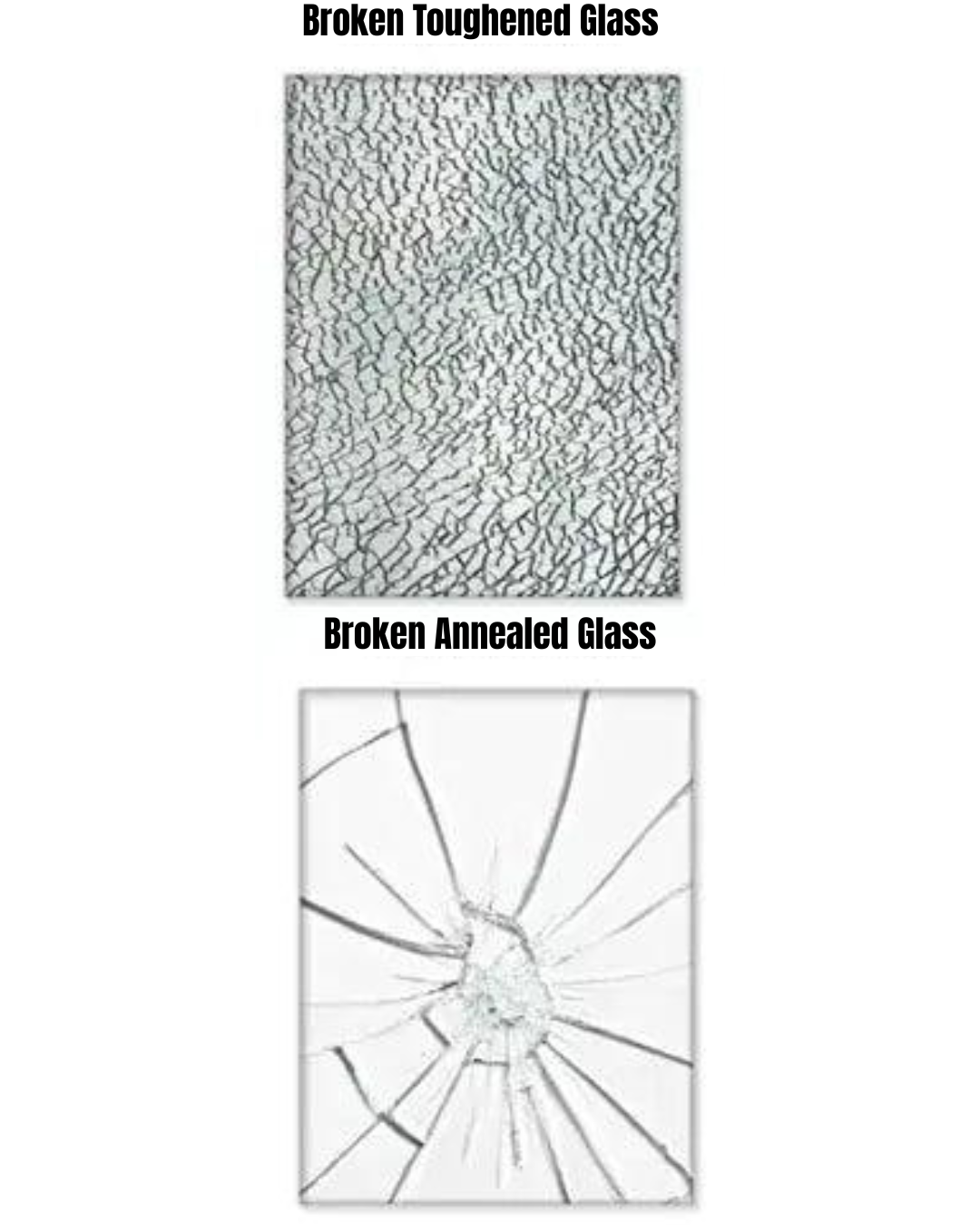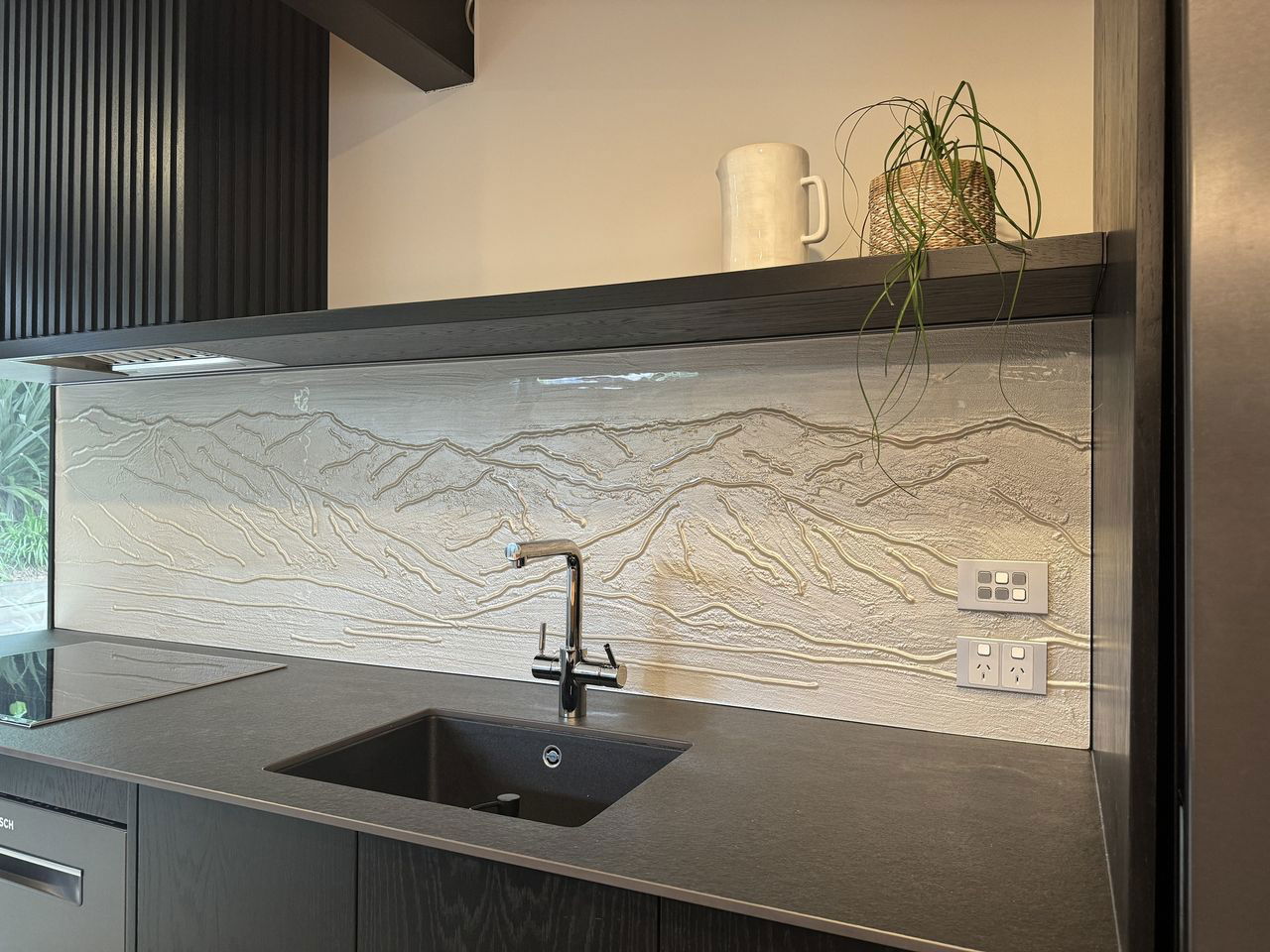
Slumped glass is a type of patterned or textured glass formed by heating a sheet of flat glass in a kiln until it softens and gradually "slumps" into a mould beneath it. This process allows the glass to take on a wide range of custom textures, patterns, and curves.
Contact us
Slumped glass is a type of patterned or textured glass formed by heating a sheet of flat glass in a kiln until it softens and gradually "slumps" into a mould beneath it. This process allows the glass to take on a wide range of custom textures, patterns, and curves.
Contact us
Handcrafted in the heart of Invercargill, New Zealand
At Escape Glass, we are proud to produce New Zealand's only toughened slumped glass, handcrafted with precision and care in Southland. Every panel is custom-designed and made to order, allowing for one-of-a-kind pieces inspired by New Zealand’s natural beauty — from ferns and native birds to Kiwiana themes. Nationwide shipping is available with all our our glass products.
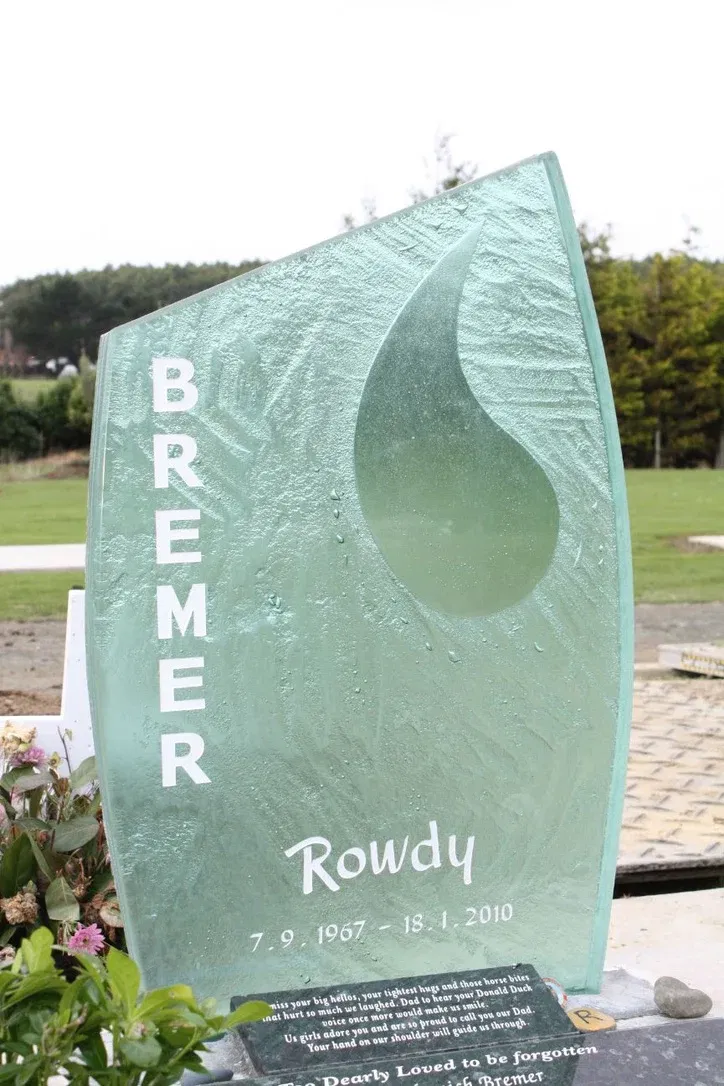
Our glass is best for
Kitchen & Bathroom Splashbacks
Shower Enclosures
Doors & Windows
Balustrades & Railings
Cabinets
Tables & Shelving
Headstones & Memorial Plaques
Signage, Logos & House Numbers
Kitchen Platters
Mirrors & More
Easy to Clean
Safety Toughened Glass
Trusted Nation Wide
Continuously improved
Here’s how Slumped Glass works
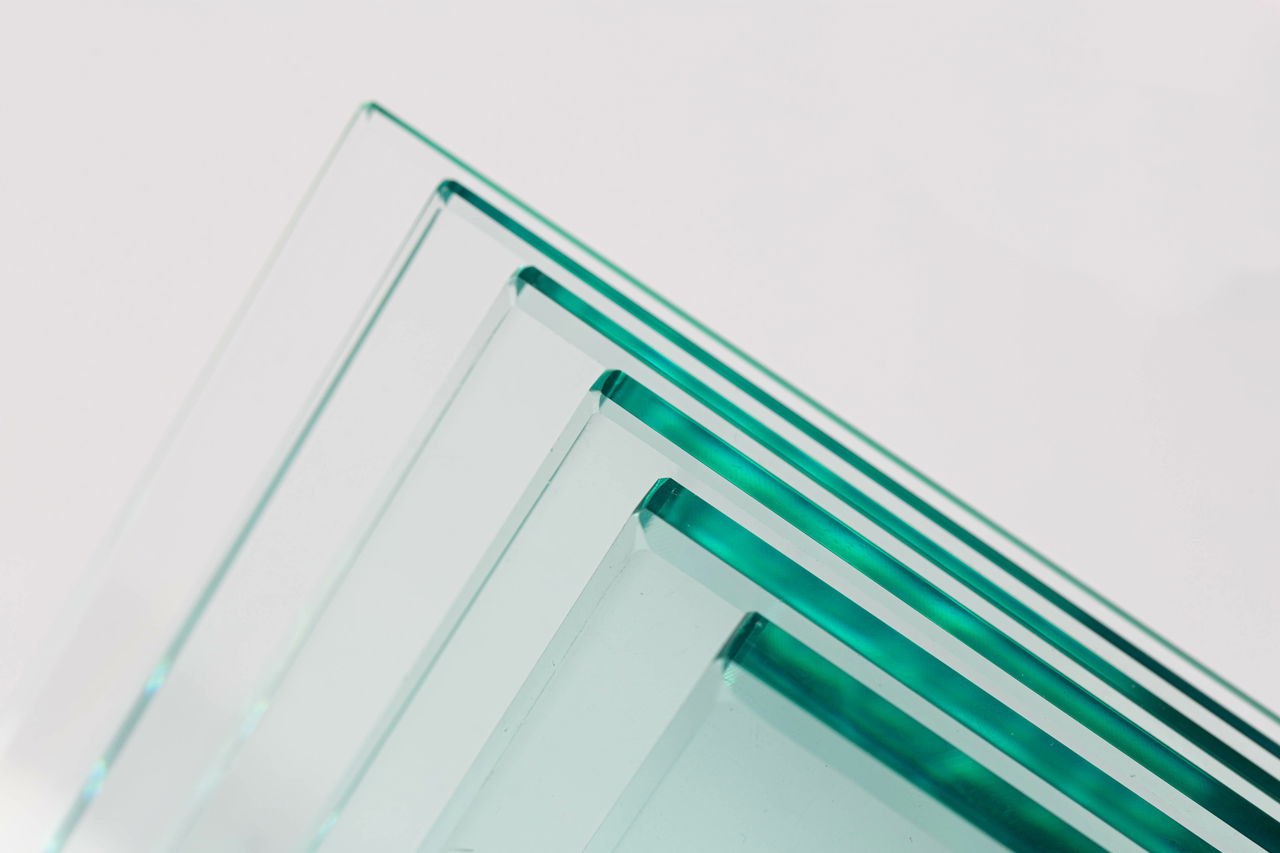
The glass is custom-cut to size and cleaned to ensure the surface is free of any specks before the slumping process.
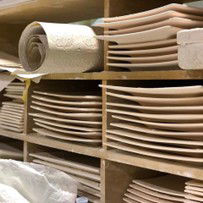
We prepare our moulds and designs. Every pattern is individually made using artisan techniques.
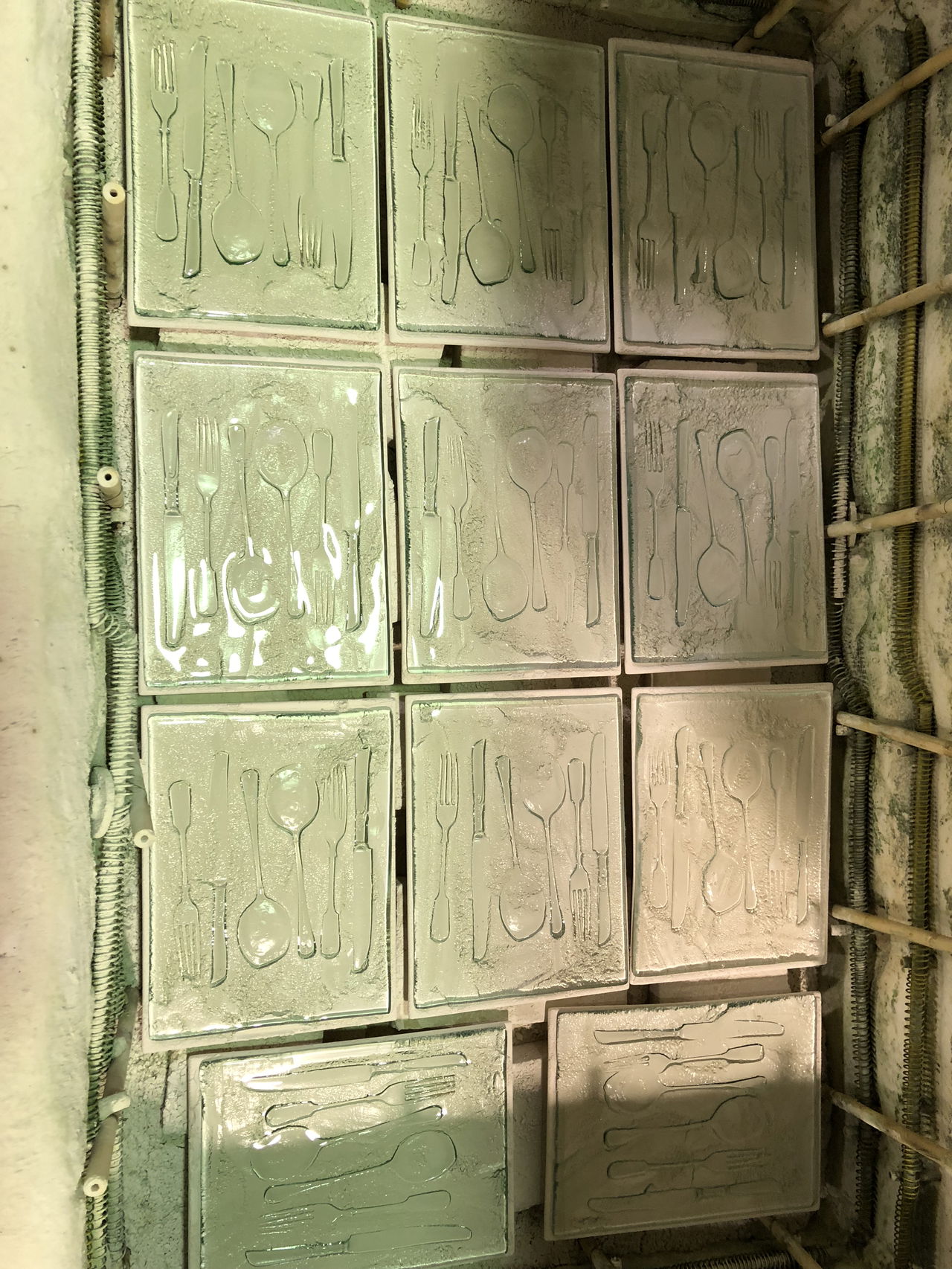
As the glass softens, gravity causes it to slump into the mould, capturing intricate patterns or shapes. The glass is then slowly cooled to lock in the new shape and texture.
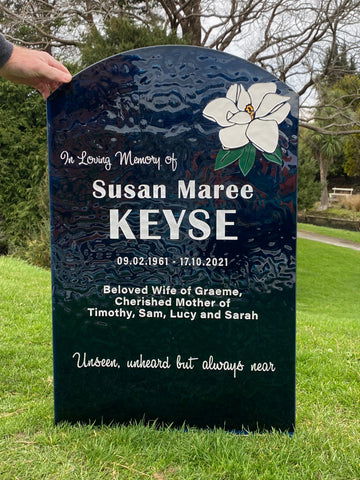
Final touches like colour coating, cleaning, polishing ect before we deliver final product to you.
What Makes Slumped Glass Unique?
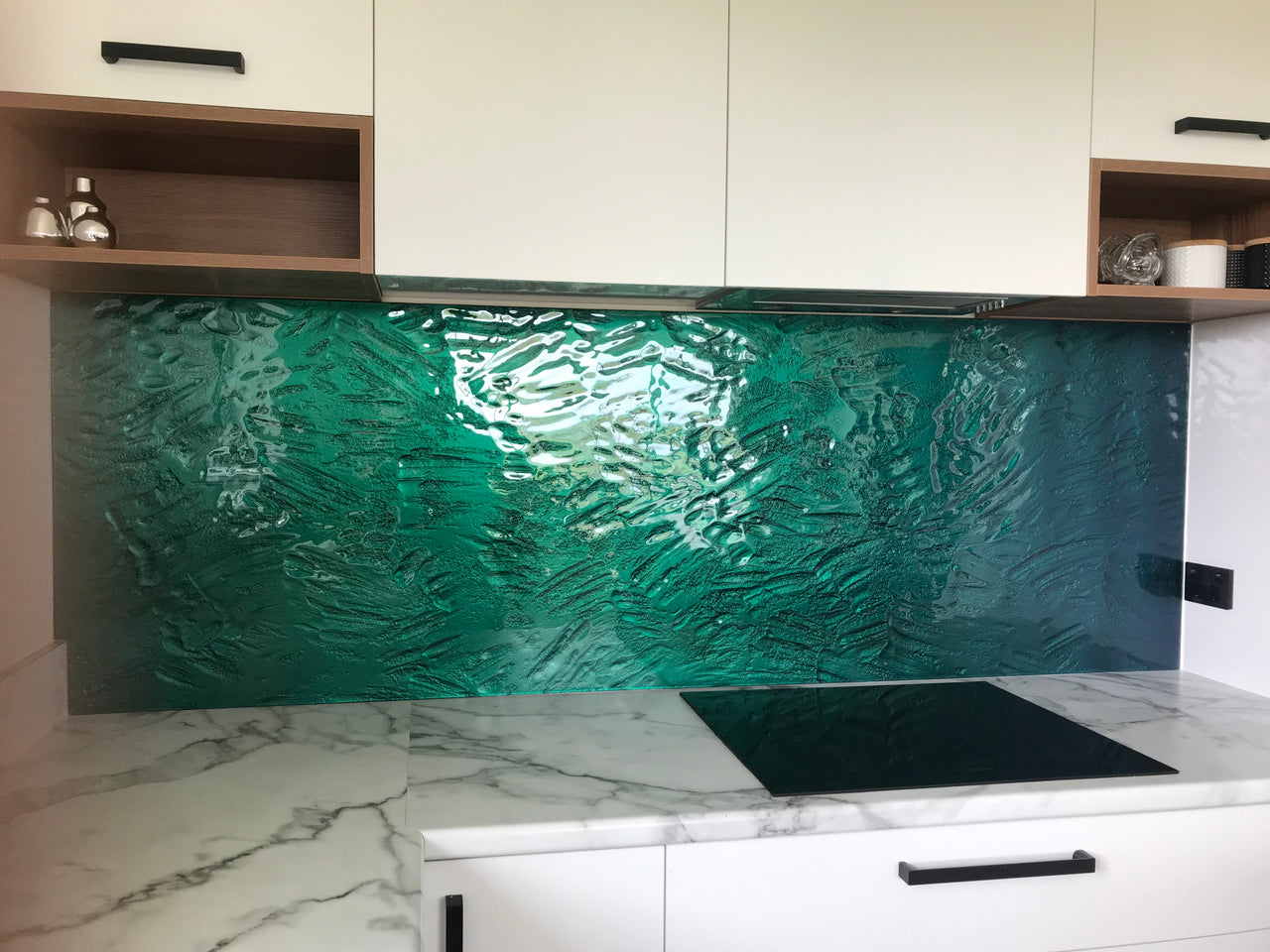
Toughened
for strength and safety — 4–5× stronger than annealed glass. Toughening is done in Christchurch, meaning your glass takes a scenic South Island “road trip” before final delivery (if toughened)
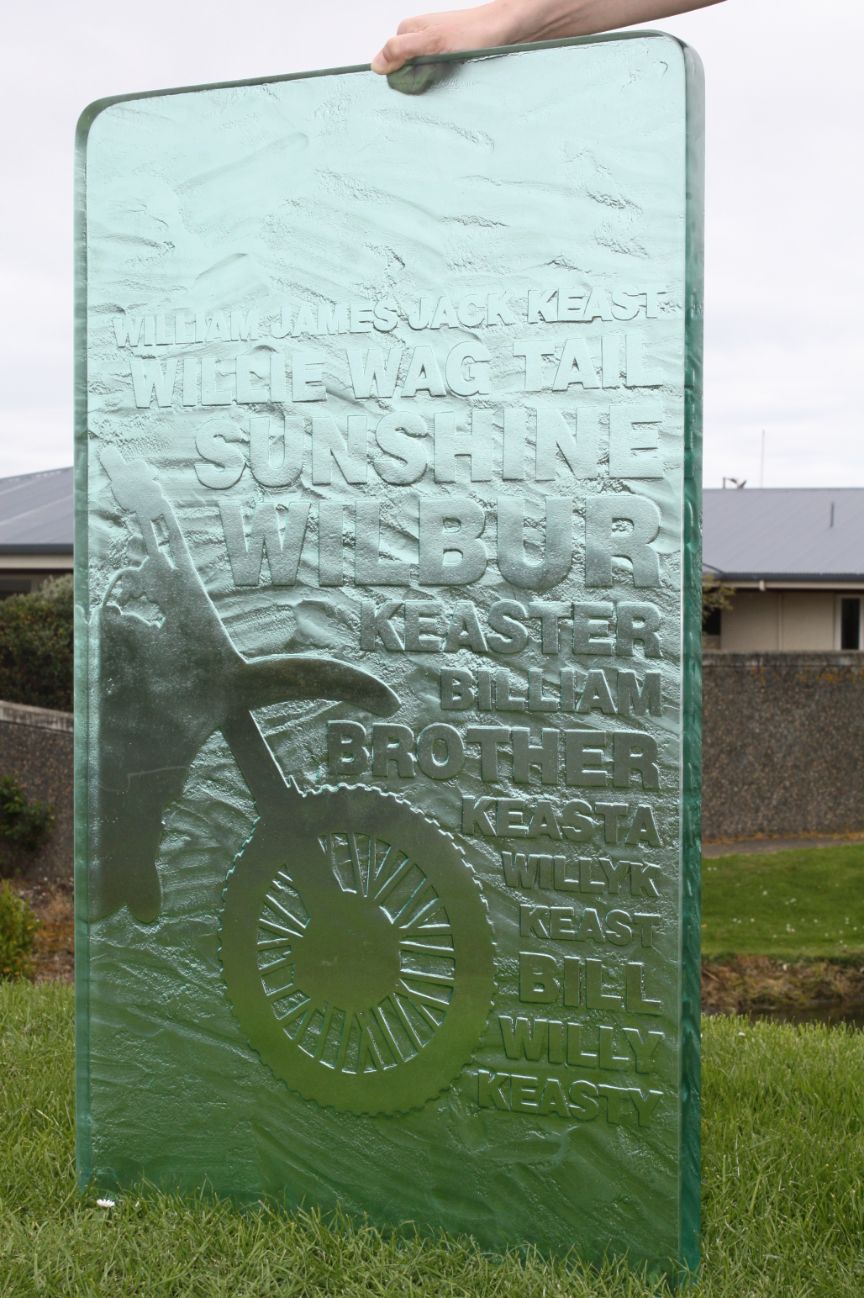
Handcrafted
No two pieces are ever the same, our team individually make every pattern from scratch. Making every piece more unique.
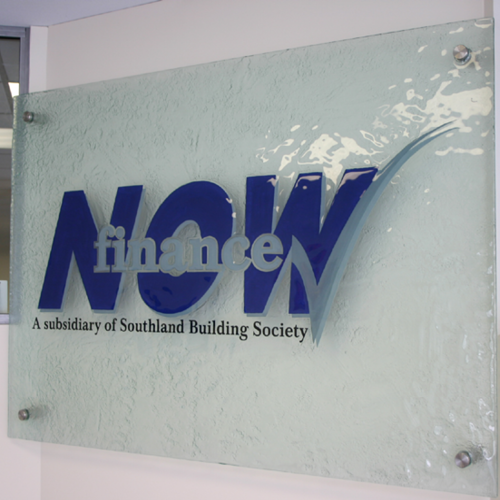
Customisable
Logos, text, and imagery can be incorporated to any of our slumped glass projects. The only limit is your imagination.
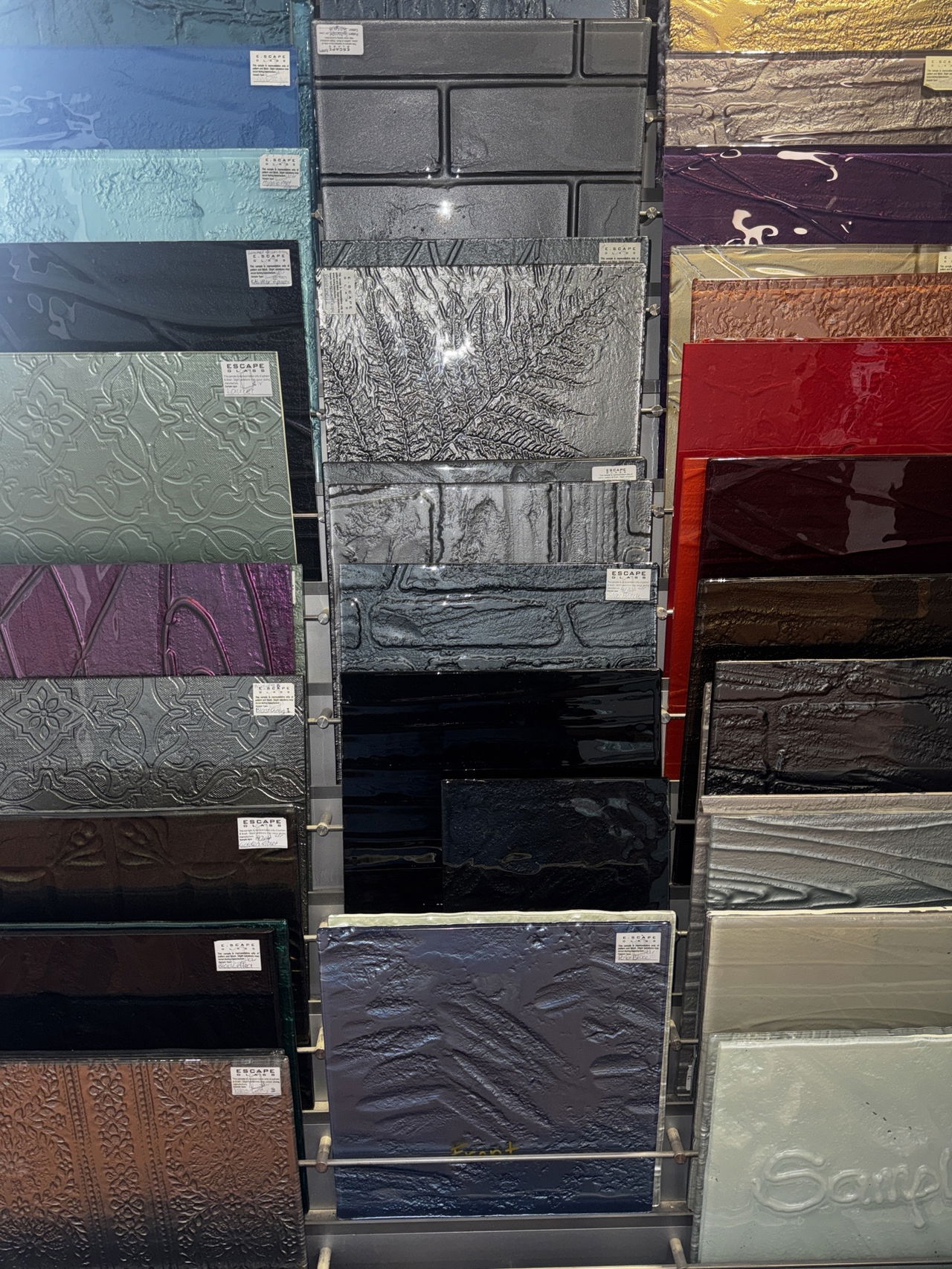
Colour Options
Our glass can be slumped green, grey, clear or low iron tint. It can then be colour-coated using Resene or Dulux paint with metallic highlights if you wish. The colour options are endless!
Custom Shapes and Sizes
We can create:
Curves, corners & cut-outs
Plug holes, logo etchings, shapes
Choose to have your glass colour coated to compliment your cabinetry or walls
Templates for complex installations (e.g., rangehood splashbacks)
Below are our standard thickness of glass however, we can also provide 5mm, 15mm, 19mm and we can fuse beyond these thicknesses.
6mm
MAX: 3200mm x 1250mm
8mm
MAX: 3200mm x 1250mm
10mm
MAX: 3100mm x 1200mm
12mm
MAX: 3100mm x 1200mm
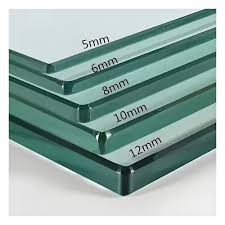
Toughened Glass
Toughened (tempered) glass is a safety glass strengthened through thermal or chemical treatments. This process creates internal stresses—compressing the surface and stretching the interior—so when broken, it shatters into small, blunt fragments instead of sharp shards.
Due to its safety and strength, it’s widely used in windows, shower doors, splashbacks, tables, and other high-impact areas. All cutting or drilling must be completed before toughening, as post-processing will damage the glass.
When slumped and toughened, the glass meets NZ/Australian safety standard AS/NZS 2208, gaining 4–5 times the tensile strength of annealed glass while maintaining the same acoustic and weathering properties. It must be installed with setting blocks and spacers to ensure compliance and safety.
Note: Toughening doesn’t improve resistance to scratches or abrasion.
